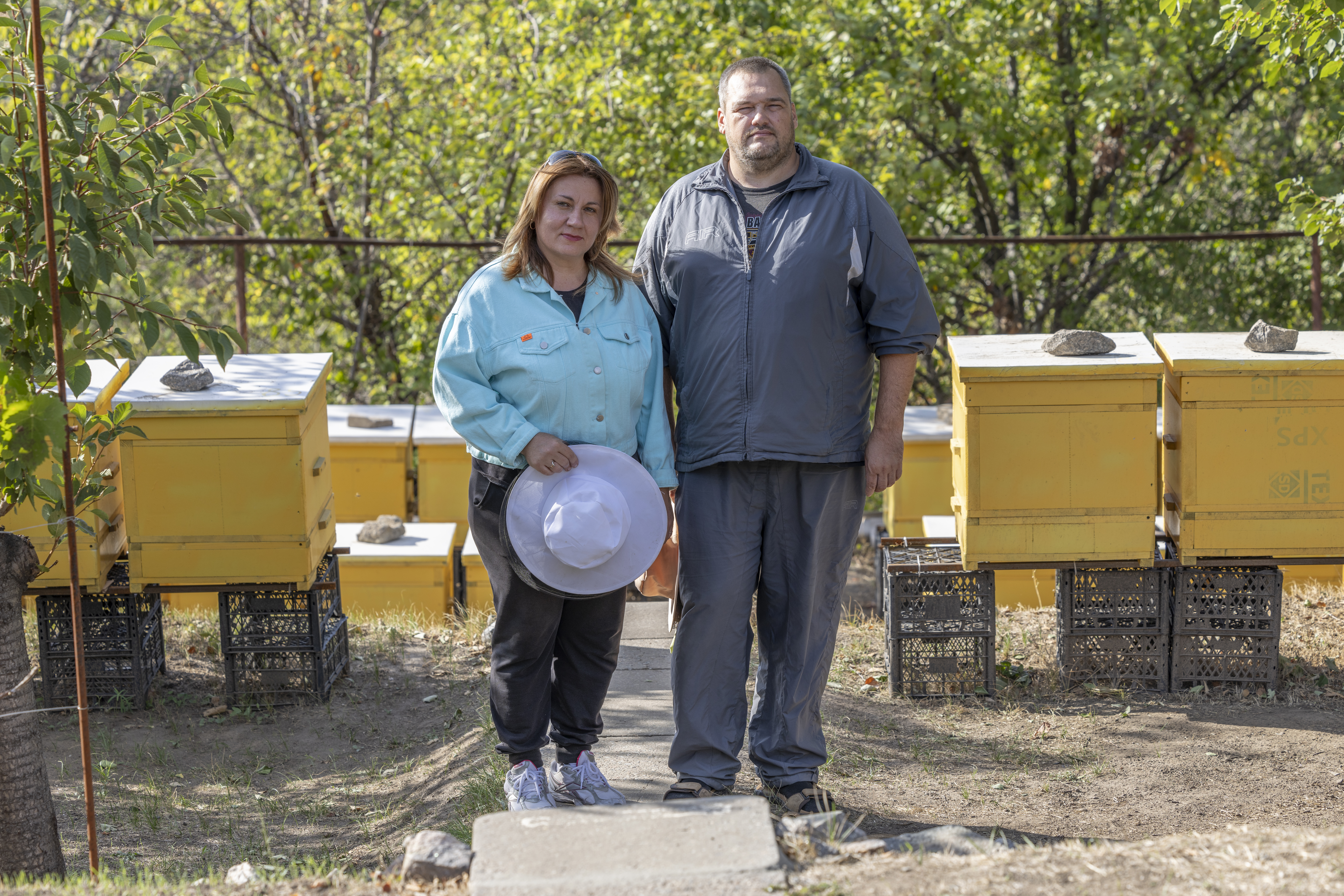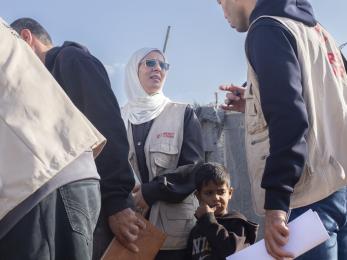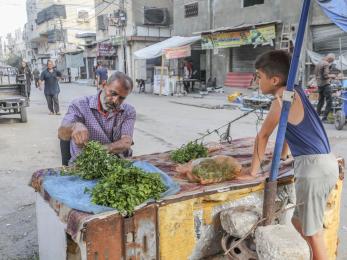A critical moment for Haiti

More than a year after the devastating magnitude 7.2 earthquake struck Haiti, the country struggles to rebuild amidst an intensifying crisis marred by violence, hunger, and a cholera outbreak. In Port-au-Prince, gang violence threatens to completely isolate the capital city, compounding the challenge of delivering lifesaving humanitarian aid.
Families have fled Port-au-Prince and the surrounding area after the drastic increase of gangs over the last year. Between January and June, 934 people were killed, 684 injured, and 680 kidnapped across the capital due to gang violence. According to the U.N.'s International Organization for Migration, gang violence and social unrest have forced 96,000 people to flee their homes in Port-au-Prince.
“In Port-au-Prince, a lot of young people have joined gangs because they don’t have food or money,” said Cassendy Charles, Mercy Corps Haiti’s Emergency Program Manager. “Some left the southwest peninsula after the earthquake looking for new job opportunities in the capital. Once they got there, they couldn’t find a job but needed to send money home to support their families so they joined a gang.”
Violence has compounded rising food and fuel costs, causing catastrophic hunger in Cité Soleil, a neighborhood in Port-au-Prince. The World Food Programme reports that 4.7 million people—almost half the population—are facing acute hunger. In addition to the hunger crisis, lack of access to clean drinking water, sanitation, and healthcare has exacerbated a cholera outbreak. The U.N. has reported 2,600 suspected cholera cases, and 40 deaths have been recorded by the Ministry of Health. According to UNICEF, children make up almost half of the suspected cases of the waterborne disease.
Although instability, fuel shortages, and constant road blockages due to gang violence pose serious obstacles to delivering humanitarian aid, Mercy Corps Haiti continues to assess safety levels in order to travel to communities where we work. We know how dire the challenges are, our programs are needed now more than ever.
As part of Mercy Corps’ ongoing support of communities recovering from the 2021 earthquake, we are continuing to provide emergency mobile money cash aid so families can put food on the table and purchase necessary supplies. In the Canaan and Bas Delmas neighborhoods of Port-au-Prince, Mercy Corps has delivered cash transfers to 3,354 households to meet their urgent food security needs. In a time of instability, mobile cash transfers also offer greater safety for participants who do not have to travel to receive assistance. We have increased cash amounts in the wake of the war in Ukraine, which has driven up food prices and availability, to help communities increase purchasing power.
Due to longstanding Mercy Corps partnerships with local Haitian organizations, we have been able to turn to them when fuel shortages limited movement and work with them to ensure continuation of programs. This included working with the community organizations to deliver supplies and to continue agricultural trainings for farmers. Our programs offer critical aid a year after the earthquake struck Haiti through long-term recovery support by providing access to clean water, livelihood support, and cash assistance.
Since 2010, Mercy Corps Haiti has delivered emergency responses in the wake of natural disasters while also providing long-term, sustainable support to farmers, young people, and small businesses. Lasting solutions for many of the challenges we face must be led locally by Haitians, in collaboration with international partners. By working closely with local communities, we’re supporting sustainable programs centered around Haitian voices, ideas, and solutions.



